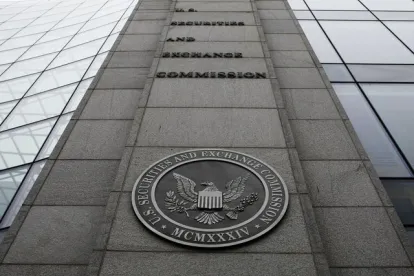On February 28, 2017, in an Order almost entirely devoid of detail, the SEC announced that a whistleblower will receive 20% of any monetary sanctions collected in an enforcement action commenced as a result of the whistleblower’s tip. The SEC is giving this “reduced” award while acknowledging that the whistleblower (1) was “culpable” in the securities violation at issue, and (2) unreasonably delayed reporting the company’s wrongdoing to the agency.
Dodd-Frank prevents the SEC from awarding bounties to whistleblowers who are criminally convicted for conduct that is the same as, or related to, the conduct that is the subject of the information they provide. However, the SEC can grant (and has granted) awards to whistleblowers who are involved in the wrongdoing but are not criminally charged, even if the whistleblower is civilly charged.
In its February 28 Order, the SEC did not identify the whistleblower or the company on which he or she blew the whistle. Nor did the SEC provide details regarding the acts allegedly taken in violation of the law. But the SEC did state that the whistleblower was culpable in the violation at issue and had unreasonably delayed reporting the wrongdoing. However, the SEC gave no information regarding the whistleblower’s culpability or the extent of that culpability.
This is not the first time the SEC has awarded a bounty to a whistleblower who has engaged in activity with which the SEC took issue to some degree. For example, in 2014, the SEC issued its largest whistleblower award to date – more than $30 million – even though it found that the whistleblower “unreasonably” delayed reporting the violation. Also, in April 2016, the SEC issued an award but ordered that part of the award would offset a judgment against the whistleblower.
Companies remain concerned that the SEC’s whistleblower bounty program may allow culpable whistleblowers to recoup potentially massive awards. Efforts are underway, however, to change this dynamic. In September 2016, House Financial Services Committee Chairman Jeb Hensarling (R-Texas) introduced the Financial CHOICE Act (“Act”), which would, among other things, allow respondents to remove proceedings from the SEC’s administrative court to federal court. H.R. Rep. No. 114-883, pt. 1, at 137. Although the bill died in Congress last year, it appears that Representative Hansarling may intend to reintroduce it. In February 2017, he issued a memorandum outlining changes planned to the introduced version of the Act, one of which would prohibit “co-conspirators” from receiving an award under the SEC’s whistleblower bounty program.





 />i
/>i
